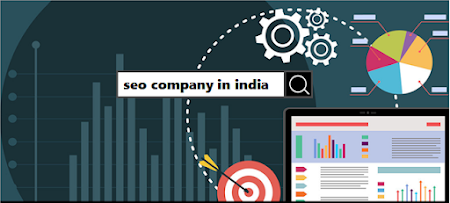In today's fast-paced, digitally driven world, the importance of digital marketing for businesses cannot be overstated. It has become an integral part of any successful marketing strategy, helping companies of all sizes generate revenue and thrive in a competitive marketplace. This article explores the key reasons why digital marketing is essential for businesses to drive revenue growth. 1. Wider Reach and Audience Targeting
Digital marketing allows businesses to reach a global audience like never before. With the internet connecting people from all corners of the world, companies can target specific demographics and geographies. Social media platforms, search engines, email marketing, and other online channels provide tools to reach the right people at the right time. This precise targeting increases the chances of converting leads into paying customers.
2. Cost-Effective MarketingCompared to traditional marketing methods like TV ads or print media, digital marketing is often more cost-effective. Small businesses with limited budgets can leverage online advertising, content marketing, and social media to promote their products or services without breaking the bank. The ability to set specific budgets and track return on investment (ROI) makes digital marketing an attractive option for businesses of all sizes.
3. Measurable Results and AnalyticsOne of the most significant advantages of digital marketing is the ability to measure results in real-time. Businesses can use various analytics tools to track the performance of their campaigns. This data provides valuable insights into what's working and what's not, allowing for adjustments and optimization on the fly. Being able to see the impact of every marketing dollar spent is crucial for revenue generation.
4. Enhanced Customer EngagementEngaging with customers is vital for building brand loyalty and generating repeat business. Digital marketing provides numerous channels for meaningful interactions. Social media platforms enable two-way communication, email marketing can personalize messages, and chatbots offer instant customer support. All of these interactions foster trust and customer satisfaction, leading to increased revenue through repeat purchases and referrals.
5. Improved Conversion RatesDigital marketing strategies, such as search engine optimization (SEO) and pay-per-click (PPC) advertising, are designed to drive targeted traffic to a website or landing page. Once visitors arrive, businesses can use compelling content, user-friendly design, and persuasive calls-to-action to increase conversion rates. A well-optimized website can turn more visitors into paying customers, directly impacting revenue.
6. Competitive AdvantageIn many industries, competitors have already embraced digital marketing. To stay competitive, businesses must also establish a strong online presence. Ignoring digital marketing means missing out on potential customers who are searching for products or services online. By investing in digital marketing, businesses can gain a competitive advantage and ensure they remain relevant in the modern market.
7. Flexibility and AdaptabilityThe digital landscape is ever evolving, and businesses need to adapt quickly to changes in consumer behavior and technology. Digital marketing provides the flexibility to adjust strategies on the go. If a particular campaign isn't delivering the desired results, businesses can pivot and try something new. This adaptability ensures that marketing efforts are always aligned with revenue generation goals.
8. Data-Driven Decision MakingData is the backbone of digital marketing. Businesses can collect a wealth of information about their target audience, from demographics to behavior patterns. This data enables informed decision-making, helping companies tailor their marketing efforts to the preferences and needs of their customers. By understanding their audience better, businesses can generate more revenue through targeted campaigns.
9. 24/7 AccessibilityThe internet never sleeps, and neither does digital marketing. With online channels, businesses can market their products or services 24/7, reaching potential customers at any time. This accessibility is especially crucial for e-commerce businesses, as it allows them to make sales around the clock, even when their physical stores are closed.
10. Integration with Traditional MarketingDigital marketing doesn't have to replace traditional marketing; it can complement it. By integrating digital strategies with traditional ones, businesses can create a cohesive marketing mix. For example, a TV ad can drive traffic to a website, where visitors can learn more and make purchases. This synergy can enhance overall revenue generation efforts.
In conclusion, digital marketing has become a cornerstone of revenue generation for businesses in the digital age. Its ability to reach a vast audience, provide measurable results, engage customers, and adapt to changing trends makes it an indispensable tool for any business looking to thrive in today's competitive landscape. Embracing digital marketing is not merely an option; it's a necessity for businesses that want to stay relevant and generate revenue effectively.


